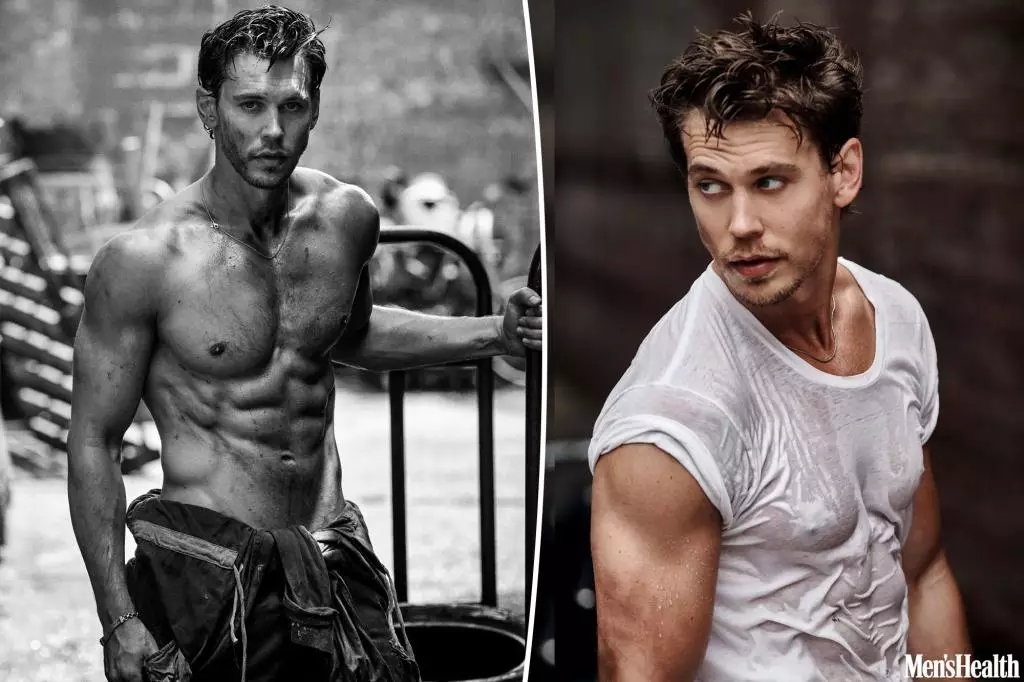In Hollywood’s relentless pursuit of perfection, actors often find themselves bending over backward—literally and figuratively—to meet aesthetic demands that serve a film’s narrative. Austin Butler’s recent transformation for his role in “Caught Stealing” exemplifies this phenomenon, revealing an intense commitment to embodying a character with convincing physical traits. Rather than merely adhering to conventional beauty standards, Butler’s process speaks to a deeper trend: the desire of actors to forge authentic on-screen representations, sometimes requiring unconventional sacrifices. His focus on building an impressively muscular and shapely posterior was not accidental but a strategic choice driven by artistic collaboration and specific character needs.
What stands out here is Butler’s willingness to step outside of comfort zones, blending rigorous workouts with dietary choices that might seem contradictory at first glance—eating copious amounts of pizza while simultaneously sculpting his body. This deliberate approach underscores an important lesson: transformation isn’t purely about strict discipline but about understanding and manipulating various facets of one’s lifestyle to serve a creative purpose. Such dedication challenges the stereotypical notion that physical change only occurs through harsh restrictions; instead, it celebrates ingenuity, patience, and the willingness to embrace complexity.
Challenging Traditional Expectations of Masculinity
What’s particularly compelling about Butler’s pursuit is how it subtly questions traditional masculinity. Hollywood often idealizes the chiseled, hyper-heroic body, yet Butler’s emphasis on a “thicker,” more exaggerated athletic figure pushes past those stereotypes. His focus on baseball players’ physiques, especially their distinctive butts, reveals an appreciation for the nuances that define different athletic archetypes. By choosing to emphasize a traditionally overlooked aspect of the male form, Butler not only enhances his character’s believability but also promotes a broader conversation around body diversity and acceptance within male aesthetics.
Moreover, his candid admission that he consumed alcohol—despite not being a big drinker—highlights an important shift towards authenticity. Acting isn’t solely about physical appearance; it’s about embodying every facet of a character’s lifestyle, including habits and vices that make them more relatable and layered. Butler’s strategy to include pizza and beer, despite not naturally leaning toward such choices, underscores a core principle: genuine acting involves immersion, sometimes at the expense of personal comfort or preference. Authenticity isn’t just about looking the part but feeling it internally, even if that means adopting behaviors that challenge one’s lifestyle norms.
The Interconnection of Personal Life and Artistic Expression
Simultaneously, the actor’s off-screen relationships and personal experiences intertwine subtly yet significantly with his professional pursuits. Rumors of romantic involvement with Zoë Kravitz and their shared history feed into the larger narrative of authenticity and chemistry—elements that are increasingly valued in Hollywood. Their public outings and reported chemistry suggest that genuine relationships—whether romantic or professional—are instrumental in delivering compelling performances. The narrative of Butler and Kravitz isn’t simply about personal flirtations but about the authenticity that can emerge from real connections, translating into more believable on-screen interactions.
What’s more, the discussion around their relationships reflects a broader cultural shift: celebrities are increasingly transparent about their lives, breaking down the sanitized mystique that once cloaked fame. This openness can foster a sense of relatability, reinforcing that behind the glamour, actors are human beings navigating complex emotions and relationships. It elevates their craft, making their performances feel more genuine and emotionally resonant to audiences who crave authenticity in a media landscape filled with superficiality.
Redefining Success Beyond the Vanity Mirror
Ultimately, Butler’s body transformation shatters the myth that Hollywood actors are merely superficial, driven solely by vanity. Instead, it suggests that success in the industry can rest on a foundation of genuine commitment and strategic thinking. Actors who prioritize authenticity and invest deeply in their craft can redefine what it means to be successful in this high-pressure environment. Their willingness to experiment with unconventional routines and openly discuss their process sets a new precedent—one where transparency and effort surpass superficial appearances.
In this way, Butler’s experience exemplifies a broader trend in the entertainment industry: the redefinition of masculinity, the embrace of vulnerability, and the celebration of hard work. As audiences grow more discerning and demand more authentic storytelling, performers who invest in transforming their images—not just physically but emotionally—will continue to carve out a lasting legacy. The focus isn’t just on fleeting beauty but on the power of perseverance, adaptability, and honesty in shaping a compelling narrative—both on-screen and in life.


Leave a Reply